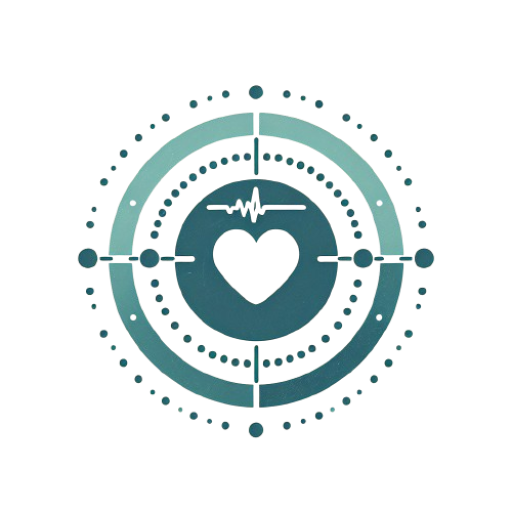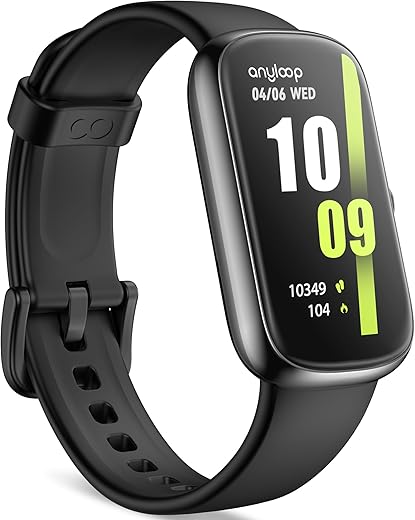
Fitness trackers with sleep tracking
As of 2021, over one in five adults in the United States use a fitness tracker or smartwatch with sleep tracking capabilities, suggesting a significant societal focus on the intersection of technology, fitness, and health. Fitness trackers with sleep tracking began gaining popularity in the early 2010s as society became more health-conscious and the technology sector sought to offer more comprehensive health and wellness tools. Initially, these devices largely centered on monitoring steps and physical activity but quickly evolved to include sleep as an essential component of overall health.
The development of sleep tracking technology has been driven by the recognition that sleep is critical to various aspects of health, including cognitive function, mood, and cardiovascular wellness. Modern fitness trackers often utilize accelerometers, heart rate monitors, and even bioimpedance sensors to detect movements, monitor vital signs, and approximate sleep stages. From measuring the duration of sleep to analyzing sleep quality by distinguishing between light, deep, and REM sleep stages, these devices aim to provide users with data to improve their sleep patterns.
An engaging aspect of fitness trackers with sleep tracking is the actionable insight they often provide. Some devices use algorithms to analyze sleep data and give personalized recommendations, such as suggesting an optimal bedtime or offering relaxation techniques to improve sleep quality. For instance, individuals often discover they get less REM sleep, the stage associated with memory consolidation, than recommended, which can lead to lifestyle adjustments. This self-awareness and potential for behavior change underscore the value of sleep tracking in fitness devices.
With technology ever-evolving, the accuracy and features of sleep tracking in fitness devices continue to advance. Some high-end models now include temperature regulation capabilities that can detect changes in skin temperature throughout the night, which may correlate with different sleep stages. These features aim to give an even more detailed understanding of one’s sleep, fueling the pursuit of not just quantity but also quality sleep—a factor increasingly recognized as just as important as diet and exercise in a holistic approach to health.
How Do Fitness Trackers with Sleep Tracking Enhance Your Well-being?
Fitness trackers with sleep tracking are advanced wearable devices designed to monitor various aspects of your physical activity and rest. These trackers offer a significant advantage by providing valuable insights into your sleep patterns, including the duration, quality, and various sleep stages such as light, deep, and REM sleep. With motion sensors and heart rate monitors, they analyze your nocturnal movements and physiological signals to create a comprehensive sleep profile. Understanding these metrics is crucial as sleep plays a pivotal role in recovery, muscle growth, and overall health. By recognizing patterns, you can make informed adjustments to your lifestyle, which might include shifting your bedtime, altering your diet, or modifying your exercise routine. Stay tuned for a detailed exploration of how utilizing fitness trackers with sleep tracking can lead to a more balanced and healthier life in the forthcoming sections.
### Understanding Fitness Trackers with Sleep Tracking
Fitness trackers with sleep tracking have emerged as a popular tool for individuals looking to gain a comprehensive insight into their sleep patterns. These devices leverage a combination of sensors and advanced algorithms to monitor the duration and quality of sleep, including the various sleep stages such as light, deep, and REM sleep.
### How Fitness Trackers Monitors Sleep
Most fitness trackers employ accelerometers to detect motion, which allows them to discern whether you’re awake, tossing and turning, or in a tranquil state of sleep. Additionally, some devices also use heart rate monitoring to enhance sleep analysis by detecting changes in heart rate that are indicative of different sleep phases. Many fitness trackers with sleep tracking functionality also rely on measuring breathing patterns and blood oxygen levels during sleep.
### The Importance of Sleep Tracking for Health
Tracking sleep can give users invaluable feedback about their sleep habits and identify trends that may affect their overall wellbeing. For example, consistent lack of restorative sleep could contribute to chronic fatigue, mood disorders, and impair cognitive function. Sleep data gathered by these fitness trackers can help to identify potential sleep disorders, which may then be addressed with the help of healthcare professionals.
### Advanced Features in Sleep Tracking
Recent advancements in fitness tracker technology have introduced more sophisticated features such as snore detection, sleep score, and smart alarms. The sleep score feature usually provides an easy-to-understand metric that evaluates the quality of sleep, considering duration, restfulness, and sleep stages. A smart alarm aims to wake up the user during the lightest sleep stage, making for a more gentle and energizing start to the day.
### Choosing the Right Fitness Tracker for Sleep Monitoring
When looking for the best fitness tracker for sleep tracking, it is vital to consider several factors:
– **Accuracy:** Find a device well-reviewed for its precision in sleep tracking.
– **Comfort:** Since the tracker will be worn during sleep, it should be comfortable enough not to disrupt sleep.
– **Battery Life:** Choose a device with a battery life that lasts several days to avoid constant charging.
– **Data Analysis:** Opt for a tracker that provides detailed data analysis and actionable insights.
– **App Integration:** Ensure that the device syncs with a user-friendly app for reviewing and interpreting sleep data.
### Impact of Sleep Tracking on Lifestyle Changes
With the data provided by fitness trackers, many users have found motivation to make lifestyle changes that promote better sleep. This may include adjusting bedtime routines, reducing caffeine consumption, or creating a more conducive sleeping environment.
### The Future of Sleep Tracking Technology
The technology for sleep tracking continues to evolve, with companies investing in research to refine the accuracy and expand the capabilities of their devices. Future fitness trackers may include more advanced sensors and use artificial intelligence to offer personalized recommendations for improving sleep.
### Sleep Tracking and Its Global Popularity
The growing awareness around the importance of quality sleep has contributed to the rise in popularity of fitness trackers with sleep tracking. According to a report from Research and Markets, the global sleep tracker market size was valued at $1.2 billion in 2019 and is expected to grow at a compound annual growth rate (CAGR) of 18.5% from 2020 to 2027. This indicates a robust and expanding interest in technologies that can enhance sleep health.
“`html
- 1. How accurate are fitness trackers in monitoring sleep?
-
Fitness trackers vary in accuracy for monitoring sleep. Most use a combination of movement and heart rate data to estimate sleep cycles, but this can sometimes lead to discrepancies. For the most accurate reading, it’s recommended to use trackers validated by scientific studies or those that include advanced sensors.
- 2. Can fitness trackers differentiate between light sleep and deep sleep?
-
Yes, many fitness trackers are designed to differentiate between light sleep, deep sleep, and REM cycles by analyzing the wearer’s movements and heart rate variability. However, the precision of these measurements can differ based on the quality and technology used in the tracker.
- 3. Do all fitness trackers come with a sleep tracking feature?
-
Not all fitness trackers have sleep tracking capabilities. It’s a common feature in many models, but if it’s important to you, check the specifications before purchasing a tracker to ensure it includes sleep analysis.
- 4. Will wearing a fitness tracker to bed disturb my sleep?
-
Wearing a fitness tracker to bed should not significantly disturb your sleep if it’s designed for comfort and has a sleep mode. However, individual sensitivity varies, and for some people, wearing a device on their wrist may be uncomfortable and affect their sleep quality.
- 5. Can a fitness tracker help improve sleep quality?
-
While a fitness tracker itself doesn’t improve sleep quality, the data it provides can help you better understand your sleep patterns. This information can be used to make adjustments to your routines or habits to potentially enhance the quality of your sleep over time.
- 6. Are there specific features to look for in a fitness tracker for sleep tracking?
-
Yes, for sleep tracking, look for features like advanced sleep cycle analysis, heart rate monitoring, and a comfortable fit for wearing overnight. Some trackers also include environmental sensors, such as temperature and noise, that can add more insight into your sleep quality.
- 7. How do fitness trackers measure sleep?
-
Fitness trackers commonly measure sleep using a technique called actigraphy. They monitor your movements through an accelerometer and sometimes use heart rate data to estimate when you’re asleep or awake, as well as identifying sleep stages.
- 8. Is the data from my sleep tracker shareable with my healthcare provider?
-
Many fitness trackers allow you to share your health and sleep data, either through an app or exported files. However, always check your tracker’s capabilities and ensure you’re comfortable with their privacy and sharing settings before doing so.
- 9. Can I use my fitness tracker to diagnose sleep disorders?
-
Fitness trackers are not medical devices and are not designed to diagnose sleep disorders. They can provide insights into your sleep patterns, but a healthcare provider should be consulted for any medical diagnosis or treatment.
- 10. How should I clean my fitness tracker to ensure its sleep tracking remains accurate?
-
Keep your fitness tracker clean by wiping it with a soft, damp cloth and avoiding harsh cleaners. Follow the manufacturer’s instructions on care to avoid damaging sensors that might impact tracking accuracy. Ensure the device is dry before wearing it to bed.
“`
Conclusion
Fitness trackers with sleep tracking technology have brought about a new dimension in the pursuit of health and wellness. They offer valuable insights into sleep patterns, allowing users to monitor the quality and quantity of their rest. Over time, these devices have evolved to provide detailed information, such as sleep stages (light, deep, REM), interruptions, and overall sleep duration. By leveraging this data, individuals can make informed decisions to improve their sleeping habits. Furthermore, integration with smart alarms can help users wake up during the lightest phase of sleep, ensuring a more refreshing start to the day.
In addition to the direct benefits concerning sleep, these trackers often come as part of a broader health monitoring system, providing a holistic approach to fitness and well-being. Continuous monitoring and analysis can reveal the impact of exercise, diet, and daily activities on sleep quality, and vice versa. However, it’s essential to recognize the limitations of these devices, such as potential inaccuracies and the need for regular syncing and charging. Despite these setbacks, the benefits of having tangible feedback on one’s sleep cycles prove to be a step forward in personal health management. The ease of access to this type of data can motivate users to adopt healthier sleeping habits, thereby improving their overall health and quality of life.





